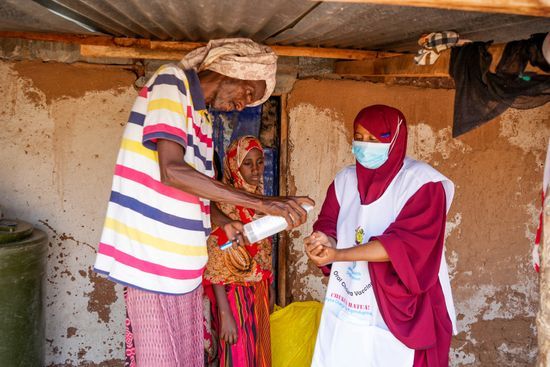
The pandemic of coronavirus disease (COVID-19) showed beyond all doubt that national governments and the global multilateral system were ill-equipped to deal effectively with the growing scale and complexity of health emergencies. There is an urgent need for coordinated action to build stronger health systems and mobilize additional resources for pandemic prevention, preparedness, and response.
The new Pandemic Fund will provide a dedicated stream of additional, long-term financing to strengthen critical pandemic prevention, preparedness, and response (PPR) capabilities in low- and middle-income countries through investments and technical support at the national, regional, and global levels as well as incentivize countries to increase investments, enhance coordination among partners.
Photo credits: WHO/Billy Miaron
Language: English
العربية, English, Español, Français, Português, Русский, 中文
Pandemic fund proposals
Course information
To complement the series of webinars held late in March on HEPR, WHO and partners are hosting weekly webinars to support the country-led development of Pandemic Fund proposals and national plans. These webinars will provide participants with an overview of the steps on a weekly basis. In addition to reviewing and discussing progress against the timeline, each session will also look ahead to the coming week’s actions.
These sessions will further outline tools and approaches countries can take to develop Pandemic Fund proposals as part of broader national plans and proposals for health emergency preparedness, readiness and resilience.
In addition to the webinars, the recently launched microsite on the WHO Partners Platform provides tools and templates with instructions to support the development of national plans and proposals. Additional templates and refinements will be added in the coming weeks.
Please, visit the previous webinar recordings that took place in March 2023, here.
This is a site for webinar recordings and no certificates are available. We are releasing new content every week.
13 April 2023
Week 1 & 2: Defining team and wider process & Identifying strategic priorities
20 April 2023
Week 3: Developing prioritized action plan
27 April 2023
Week 4: Costing of prioritized actions
4 May 2023
Week 5: Mapping of existing resources
11 May 2023
Week 6: Developing funding proposals
What you'll learn
- Describe the key elements and main tools for national planning to strengthen HEPR, and the modalities of the first call for proposal
- Outline key considerations for capacity, threat, and vulnerability assessments
- Clarify the approach to developing prioritized and costed plans
- Highlight main modalities to map and mobilize resources
- Describe the approach to implementation, monitoring and review.
Course contents
Week 1 & 2: Defining team and wider process & Identifying strategic priorities:
This session focuses on step 1 “Defining team and wider process” and step 2 “Identifying strategic priorities”, sharing key actions, deliverables and templates, as part of an optional accelerated national planning process in support of Pandemic Fund proposals.Week 3: Developing prioritized action plan:
This session explains step 3 on developing (i) prioritized action plans for health security based on capacity assessment, (ii) operational readiness plan imminent risks based on existing strategies and programmes.Week 4: Costing of prioritized actions:
This session presents step 4 on costing prioritized actions.Week 5: Mapping of existing resources:
This session outlines the step 5 approach to (i) establishing a monitoring and evaluation framework, (ii) completing operational reviews, and (iii) adjusting plans, including financing critical bottlenecks.Week 6: Developing funding proposals :
This session explains step 6 on developing funding proposals as well as on how to navigate through the application portal.